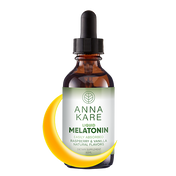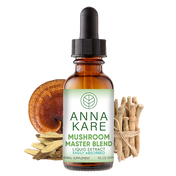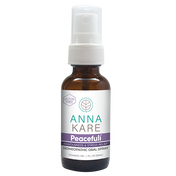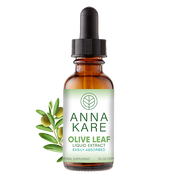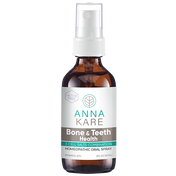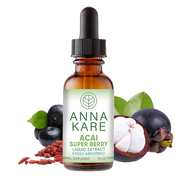Sometimes called the hormone of darkness, melatonin is quite important because it relates to you getting a good night’s sleep! But what is melatonin and how can it help you rest?
This hormone is produced primarily in your pineal gland, is regulated by the light/dark cycle, and is secreted during the dark phase.
In addition to sleep, there are several other important bodily functions that rely on this hormone. For example, melatonin offers important antioxidant activity and supports immune system function (1).
Melatonin Overview
Found in both plants and animals, melatonin offers diverse physiological actions. Perhaps its most important function is to provide signaling as to the time of day and time of year, acting like your body’s time clock.
It helps you to understand the time of day (your circadian rhythm) and the season of the year (your circannual rhythm).
Melatonin and Sleep
What each person considers a good amount of sleep varies significantly. Some people may just need four hours of sleep to be refreshed, while others could feel fatigued or irritable on eight hours.
One thing is certain, a quality restorative sleep is needed for a vibrant sense of well-being!
How does melatonin promote a good night’s sleep? Having good levels has shown in multiple studies to induce drowsiness and sleep as it gets dark and the day comes to an end.
It releases from the pineal gland at night to synchronize your circadian rhythm in different body parts for a healthy nocturnal sleeping pattern.
In a meta-analysis of 17 different studies involving 284 subjects, good melatonin levels improved sleep onset, duration, and efficiency (2).
|
Liquid Melatonin |
Melatonin and Working the Night Shift
Light exposure suppresses your melatonin levels and darkness has a stimulating effect on the hormone’s production. If you have unusual sleep/awake hours, taking a melatonin supplement may help normalize your potentially disturbed bodily rhythms.
This has been shown to be effective in treating CRSD (Circadian Rhythm Sleep Disorders) in night shift workers (2).
Melatonin Levels in People Over 60 Years of Age
Nocturnal awakening can increase with old age. Melatonin levels tend to be significantly lower in older people with insomnia. This reduction of levels found in the aging population may indicate the presence of an "age clock."
Melatonin offers important antioxidant action to protect the body from the effects of free radicals. Therefore, it has been hypothesized that the reduction of melatonin levels with age may contribute to the aging process (3).
Taking a melatonin supplement could be like a “Fountain of Youth” for some older people.
Melatonin and Jet Lag
Jet lag can result when your body's internal rhythm becomes confused by traveling in an airplane to a different time zone.
If you are planning a trip where you are crossing over two or more time zones, you may consider taking a melatonin supplement. In a review of multiple studies, this was significantly helpful to travelers in regaining healthy sleep patterns (4).
Other Important Functions of Melatonin
Besides helping you to get your much-needed sleep, melatonin plays an important role in a variety of bodily functions. Various studies show that liquid melatonin benefits include reducing oxidative damage, disorders of the immune system, and more.
Here is a list to consider (1):- Antioxidant activity – Melatonin up-regulates antioxidative enzymes to help decelerate neurodegenerative disease, slow tumor growth, and enhance immune function.
- Weight gain issues – Melatonin has a role in energy expenditure and body mass regulation.
- Mood and stress – Low melatonin levels have been seen in some patients with mood disorders such as seasonal affective disorder. The hormone has been found to be effective in improving mood. Further, it can reduce serotonin production, the hormone associated with stress.
- Meditation – The tranquillizing effects may enhance a meditative state.
- Brain health – The hormone offers a neuroprotective effect by increasing the production of antioxidative enzymes to fight free radicals.
- Heart health – By reducing stress hormone levels, melatonin is associated with the reduction of systolic, diastolic, and mean blood pressure levels.
- Gut health – The presence of melatonin in the digestive tract may offer a protective benefit.
- Eye health – There are photoreceptors that regulate melatonin synthesis in our eyes. Melatonin’s protective effect may help reduce ocular diseases such as glaucoma and age-related macular degeneration (5).
- Bone health – Melatonin has significant bone-protecting properties.
|
Stress Buster Bundle with Melatonin and homeopathic remedies |
In Summary
Melatonin is a hormone that helps us get quality sleep. It also has a variety of other health benefits. You may consider taking a quality melatonin supplement if you need better rest.
Anna’s Remedies Liquid Melatonin is easy to take and readily absorbed. Just take 30 drops or two half-full droppers directly in the mouth about 30 minutes before bedtime.
References:
- Pandi-Perumal, S. (2006). Melatonin, Nature's Most Versatile Biological Signal?
- Brzezinski, A. (2005). Effects of Exogenous Melatonin on Sleep: A Meta-Analysis.
- Bubenik, G. (2011). Melatonin and Aging: Prospects for Human Treatment.
- Herxheimer, A. (2002). Melatonin for the Prevention and Treatment of Jet Lag.
- Lundmark, P., et al. (2006). Role of Melatonin in the Eye and Ocular Dysfunctions.
Please note: The information in this article has not been reviewed by the FDA (Food and Drug Administration) and is not intended to diagnose, treat, or cure any disease(s).













